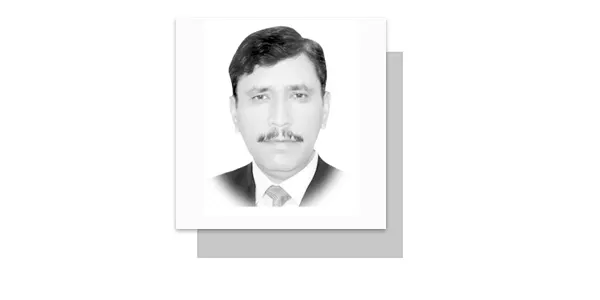BILAWAL Bhutto (Zardari) may not be a newcomer to the world of politics, for he carries the legacy of a political dynasty that spans generations. With both a mother and father deeply entrenched in the political landscape of Pakistan, he has been groomed in the crucible of electoral politics from a young age. His roots in the Pakistan People’s Party (PPP), founded by his grandfather Zulfikar Ali Bhutto, signify a profound connection to the nation’s political history.
However, in some respects, one could label Bilawal as a political innocent, not due to his lack of experience but because he is a representative of the new generation. He embodies the spirit of the twenty-first century, which demands fresh perspectives and innovative solutions to age-old problems. His vision is untethered to the political dogmas of the past and unburdened by the legacies of his predecessors.
Recently, there was a wave of change in Pakistan’s political landscape and Bilawal’s own father, Asif Ali Zardari, was one of the driving forces behind it. The prospect of Bilawal becoming the Prime Minister was a topic of discussion. However, the course of events took an unexpected turn and he was appointed to the crucial position of the Ministry of Foreign Affairs. This move indicated his party’s trust in his diplomatic capabilities.
When the 13-member coalition government dissolved, Bilawal chose not to seek a position in the interim cabinet for his party. Yet, the prevailing circumstances have begun to sow seeds of doubt in his mind. He wonders whether the PPP has been deceived and if the party’s interests are truly being safeguarded. His unwavering demand for timely elections, even when his party was part of the decision-making process regarding the election schedule based on new census data, is a testament to his commitment to democracy.
During the 13-member coalition government, Pakistan experienced inflation, increased tax burdens on the people and a crackdown on the opposition. However, with the return of Nawaz Sharif with official protocol, Bilawal now fears that the benefits of the Tehreek-e-Insaf’s absence from the public scene might inadvertently boost Nawaz Sharif’s political standing. He is convinced that the Pakistan Tehreek-e-Insaf (PTI) must be an integral part of the electoral process, ensuring a level playing field. Without this, the PPP may not accept the results of the next election. The PTI’s support for this demand signifies a common cause, uniting the opposition forces.
As we look to the political future, it’s apparent that the PPP will find itself competing with the Pakistan Muslim League-Nawaz (PML-N). The PPP’s strategy will likely involve limiting the PML-N’s influence in Punjab, where the PTI will be a formidable presence in urban constituencies and the Istehkam-e-Pakistan Party in rural areas. If no single party emerges as the dominant force in Punjab, the PPP could claim the largest share of seats, positioning them well to lead a coalition government, perhaps with nationalist parties. However, securing their position in Sindh and gaining some seats in South Punjab will be key to their success.
Yet, several challenges loom on the horizon. The first is the ideological factor, influenced by the right-wing movement. The PPP’s stance on the economy may not align with contemporary needs, potentially posing a hurdle to its progress. While politics may be paramount, international financial institutions hold their own criteria for assessment. Second, Asif Ali Zardari’s policy of ‘political reconciliation’ – which seeks to obscure the party’s progressive vision – has had an impact. The PPP’s alignment with the Pakistan Democratic Movement (PDM) delayed the elections and weakened its position in Sindh and at the federal level. Senior leaders like Khurshid Shah have openly acknowledged this as a mistake.
Bilawal alone cannot realign the PPP’s political direction while preserving its progressive and essentially scientific credentials. A political party’s identity emerges from its enduring policies and principles. Activists are nurtured and their loyalty grows over time. The PPP was once a rival of the PML-N, but its alignment with the PDM and other parties led it down a different path. South Punjab, once a PPP stronghold, has slipped from its grasp, a disappointment that weighs on the party’s legacy.
Asif Ali Zardari’s emphasis on humility in politics, albeit with a pragmatic twist, fostered an atmosphere of political camaraderie. However, the landscape of Pakistani politics has shifted and this approach may no longer serve its purpose. The PPP made sacrifices to improve the political climate but may have inadvertently benefited the PML-N.
Bilawal’s greatest asset is his innocence, a quality that can set him apart in the competitive political arena. If circumstances lead the PPP and PML-N into a rivalry, his innocence could be his strongest shield. This quality has the potential to resonate with the youth, a demographic that the PML-N may struggle to connect with. Recognizing and harnessing this asset could steer the direction of the Pakistan People’s Party toward a promising future. The time is ripe to shape the future of Pakistani politics and it’s up to Bilawal to seize the moment.
—The writer is politico-strategic analyst based in Islamabad.
Email: [email protected]
views expressed are writer’s own.










